Who is Donna Laframboise?
Donna is an independent journalist/photographer with extensive newspaper & magazine experience and a history of careful, time-consuming, investigative work. She is a former National Post columnist, feature writer, editorial board member (1998-2001) and a past vice president of the Canadian Civil Liberties Association.
Donna's latest book - Thank You, Truckers! Canada's Heroes & Those Who Helped Them - documents the historic Freedom Convoy trucker protest of early 2022.
Donna grew up working class, the daughter of an auto mechanic. She has never been politically correct, never been a member of the media inner circle.
She publishes on substack here: Thank You, Truckers!
You can buy her latest book here: Thank You, Truckers!
Interview
Ulysses: Your book is the first of its kind, collecting many stories from the regular people who participated in Freedom Convoy. This is a daunting task. How did you go about finding, collecting and recording these stories?
Donna: After the truckers had been in Ottawa for a week, I travelled there to photograph the protest. Something historic was obviously underway, and I wanted to record the moment. It's about a six-hour drive from my home, and I spent five full days walking around outdoors, talking to people, taking photos with my Nikon and recording video on my phone. I posted some of those images and videos online at the time.
It was only afterward that I felt the need to write a book. Naively, I expected the mainstream media to course correct, to start presenting a more nuanced and balanced view of this historic protest once the heat-of-the-moment had passed. When that didn't happen, I realized that the experiences of ordinary people who participated in the Freedom Convoy were going to be memory-holed unless someone stepped forward to document what had happened.
I returned home with a handful of phone numbers. For example, when I learned that two of the guys parked on Wellington Street lived within an hour of me, I got their numbers and told them we'd host a dinner party in their honour after everything was all over. My husband barbecued steak, and it was a ton of fun.
After I began formally interviewing people, they'd often say, "You really should talk to so-and-so." In one instance, a woman I was interviewing in eastern Ontario called up a Nova Scotia trucker on the spot, introduced me, and handed over her phone so I could chat with him. In other cases, third parties spoke to potential interview subjects on my behalf, thereby tipping the scale in my favour. (People have good reason to distrust journalists these days.)
The interview that took me the longest to land was with Bianca, the young mother from Quebec who brought the bouncy castles to Ottawa. She's coping with some serious family matters these days, so talking to me wasn't her highest priority, understandably.
Ulysses: Do you have some favourite stories that you would highlight as particularly exemplary of the event?
Donna: Not really any favourites. As a professional journalist I have written many profiles over the years. I know how to construct effective, memorable essays. Honestly, I feel each chapter in my book is a gem. Readers are meeting real people, real families.
In Chapter 6, Manitoba cross-border trucker Clarence explains that while he himself was barred from working, "what really motivated me was my wife and daughter were both in university, and both were getting kicked out because of the [vaccine] mandates." It wasn't just truckers who were marginalized for making what governments considered the 'wrong' health decision. Entire families were being pummeled.
Ulysses: Do you feel that public perception of the protest is changing? How so? Why?
Donna: In early 2022, after two years of pandemic trauma, we were all in desperate need of some peace, love, and understanding. Instead, the truckers were treated like garbage. Their point-of-view was judged unworthy of being heard. In a country that prides itself on its tolerance and compassion, those were nowhere to be found.
Unfortunately, I don't feel much has changed during the three years since. When I'm making small talk with a stranger and I say I've just finished writing a book, I still brace myself for the next question: 'What's it about?' Because a potentially awkward moment comes next; the person to whom I'm speaking may be about to turn hostile.
Ulysses: What were some of the most surprising things you learned as you worked on this project?
Donna: The over-representation of immigrants surprised me. I'm talking about the truckers involved in the protest, but also about the folks who brought them food, fuel, and funds for weeks in Ottawa.
Canada is home to large numbers of immigrants, many of whom fled here, seeking freedom and safety. If you've escaped tyranny once, you recognize the signs when they start to emerge again. Immigrants to Canada had an important perspective on how governments were behaving during COVID. But no one was interested in hearing that perspective or learning from it.
Ulysses: We may take truckers for granted. Food and other necessary goods get delivered on time and never think twice about it, but it takes a special kind of character to do this job. After talking to so many truckers, what would you say defines the trucker character?
Donna: The truckers I met while researching this book are highly competent, can-do personalities. They're self-reliant, independent spirits. Give them a task, and then get out of the way so they can complete it. Because many of them routinely drive through many different jurisdictions, I think their perspective on life and on current events is broader than most people's.
Ulysses: What now? After a much deserved rest from completing this book, what are the next steps for you?
Donna: Getting the book finished and out into the world is a huge milestone. Now I've entered the promotion phase, which involves spreading the word. Millions of Canadians applauded and supported the truckers – as did millions of others around the world. The market for a book that documents the experiences of Freedom Convoy participants accurately and fairly is potentially large. The challenge is making people aware of it.
The mainstream media is going to pretend this book doesn't exist, so word-of-mouth is super important.
You heard the lady! Subscribe to her stack and restack this one for visibility! After you’ve bought Donna’s book, come back here and scroll down to read this comic I made inspired by my trucker memories. I know you’ll love it!





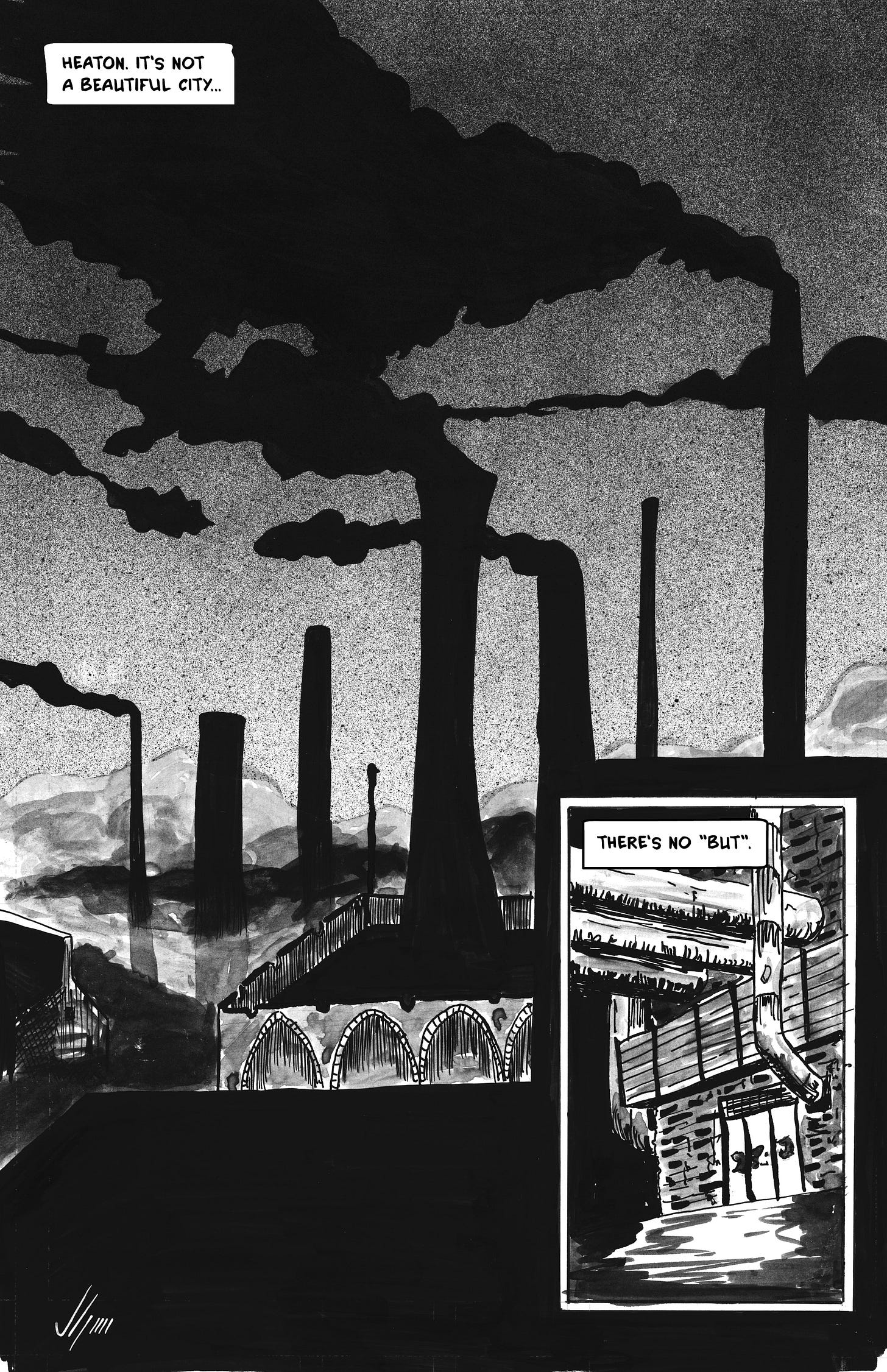
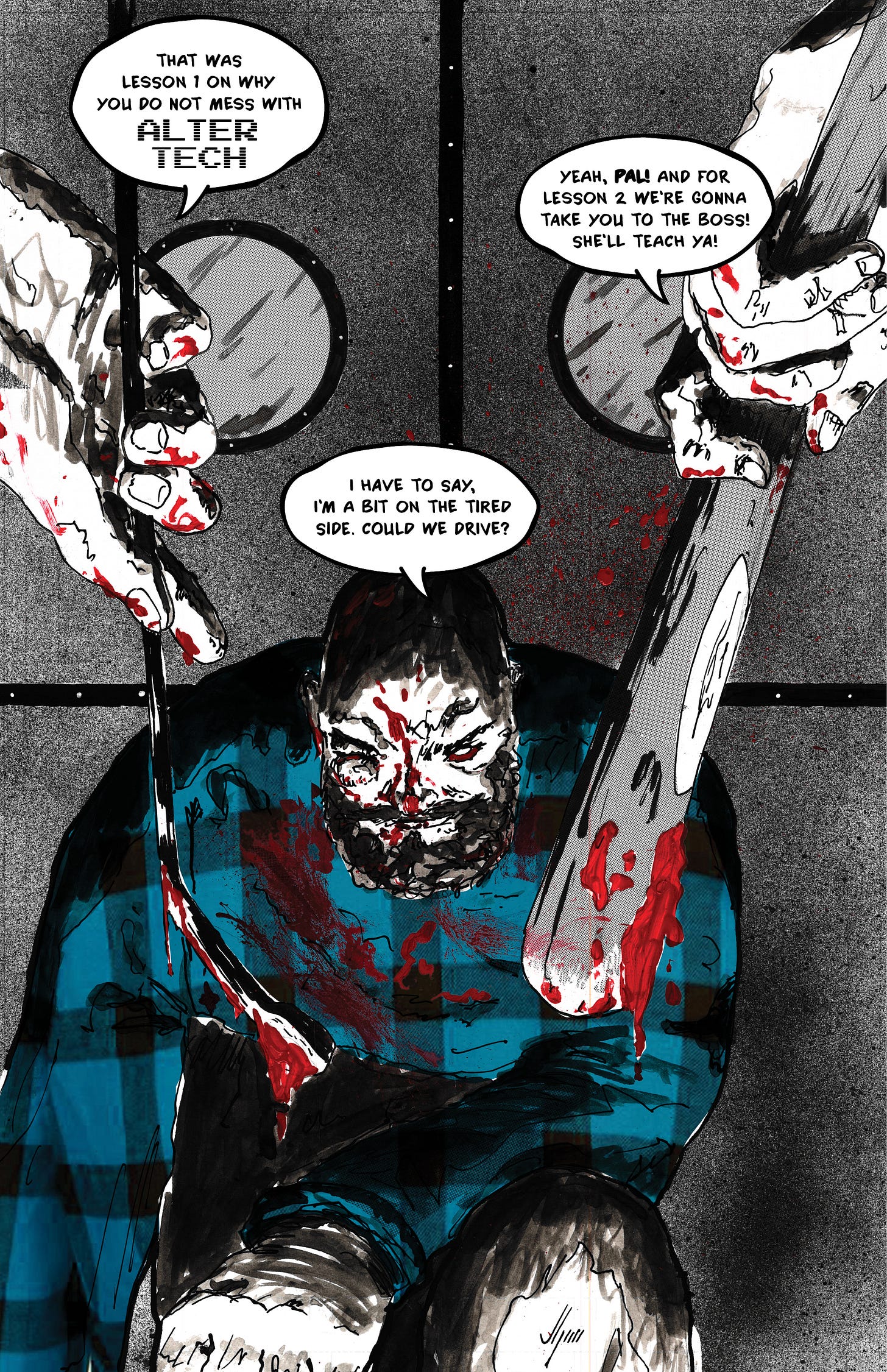
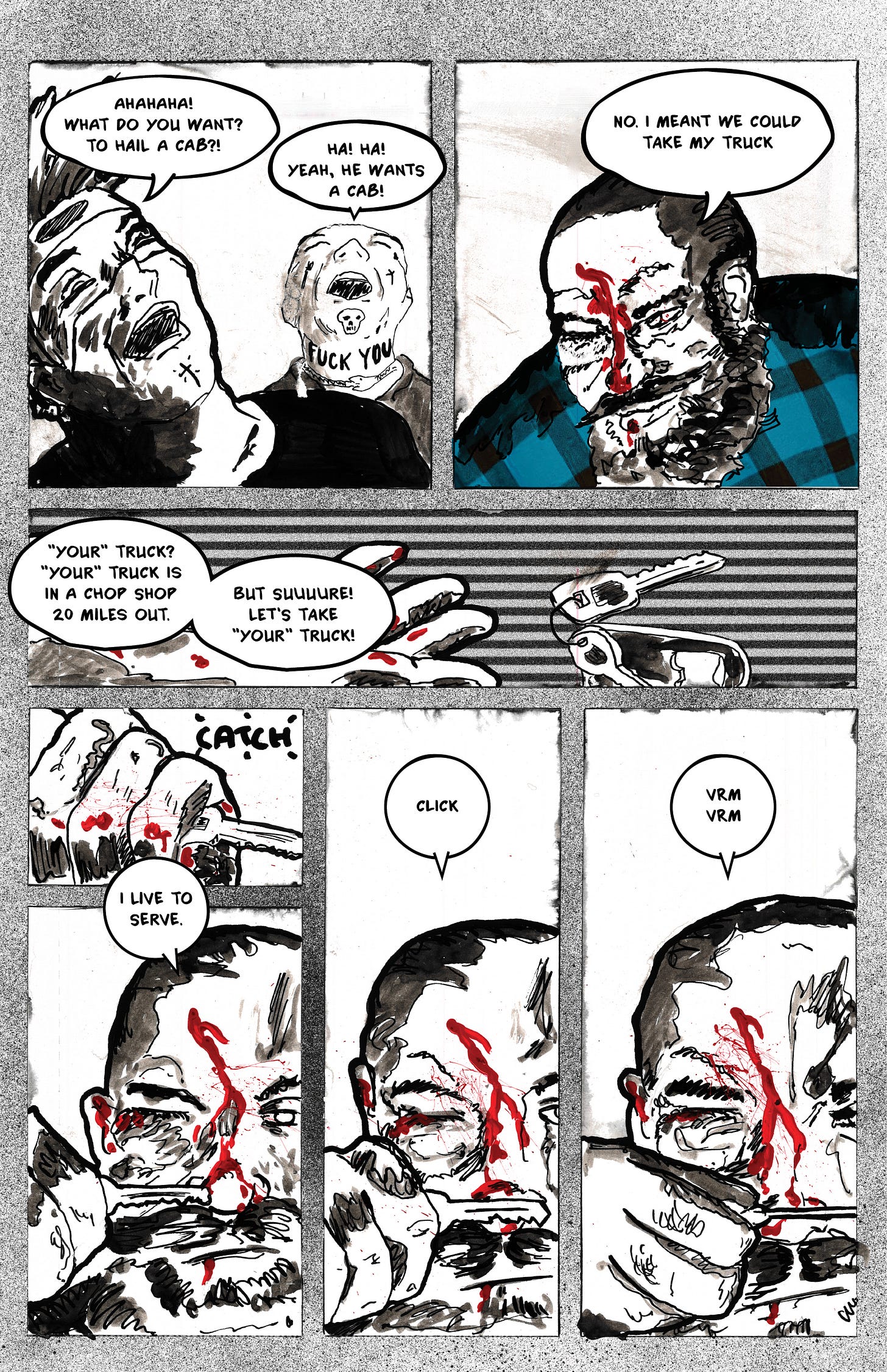

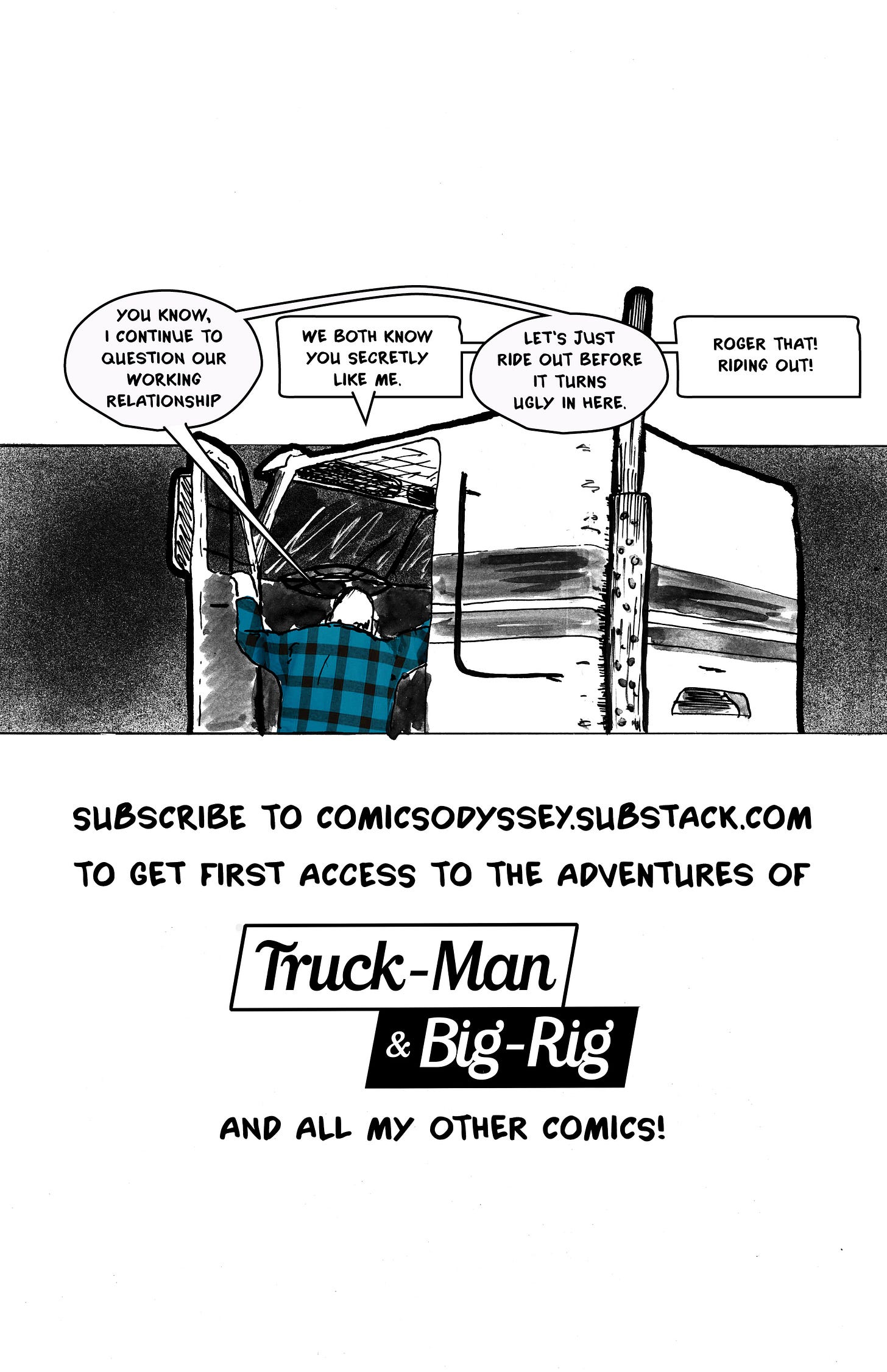



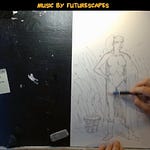




Share this post